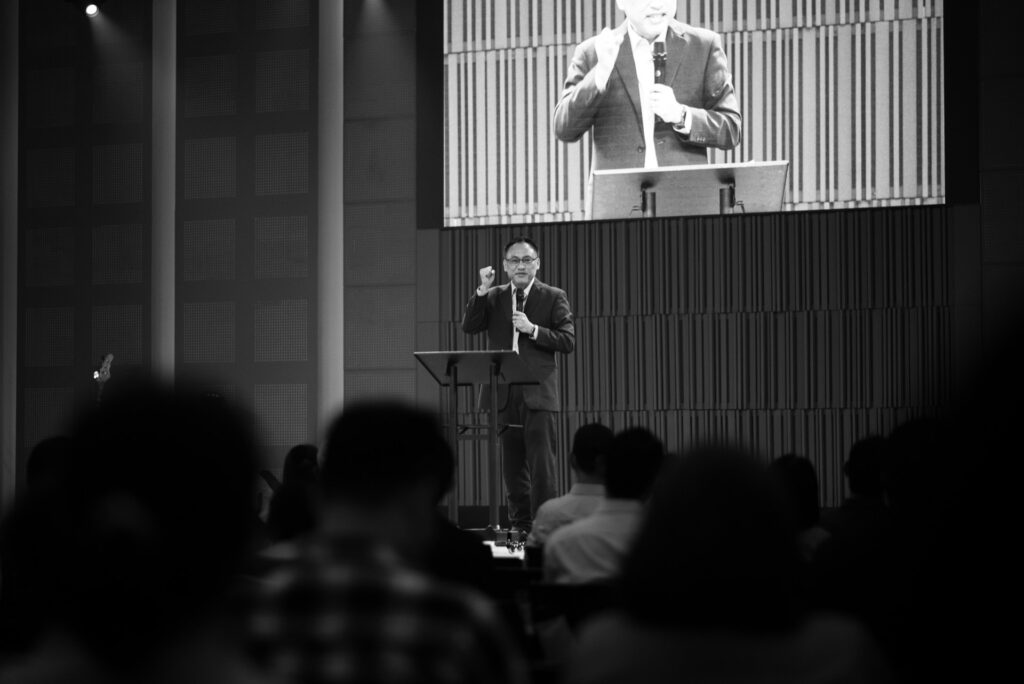It’s been a while. We’ve seen each other in passing a couple of times. Your pictures popped up in my news feed. I think I might’ve seen you at the grocery store last week.
What I really mean to say is, it’s been a while since we fellowshipped.
The last time we had fellowship—where we prayed, laughed, and bore one another’s burdens —was probably more than a year ago. Back then, we were confused and afraid. We really thought that a plague of biblical proportions was about to end our way of life.
Truthfully, we did see—and are still seeing—the judgment-hand of God. We, as a people, have turned our back on the Lord and should expect to reap the consequences. Yet with any judgment, there is mercy. God is never as harsh with us as we deserve. Even his most severe chastisements are intermingled with grace. He does not treat believers according to their sins (Ps. 103:10), and he makes the sun to rise on the just and the unjust (Matt. 5:45).
So what was—or is—the nature of the judgment we’re experiencing? The Apostle John records for us Christ’s words for the church in Ephesus:
But I have this against you, that you have left your first love. Therefore remember from where you have fallen, and repent and do the deeds you did at first; or else I am coming to you and will remove your lampstand out of its place—unless you repent. (Rev. 2:4-5 NASB)
Hear me, friend: this is for us. Our Lord has something against us and is disciplining his people. There are too many reasons to discuss them here. But note the solemn warning: “I will remove your lampstand.” In Revelation 1:20, we’re told that the lampstands represent local church communities. Jesus is saying that unless we repent and renew our love for Christ, our assembly will disintegrate. The church planted will be uprooted. This little light of ours won’t shine.
This is a weighty threat. Remember what happened in Jerusalem following Pentecost? The first generation of believers became devoted to learning from the apostles, coming together in communion, and selling their possessions to care for one another’s needs. Through their faithfulness, their little group quickly grew as “the Lord was adding to their number day by day those who were being saved” (Acts 2:47).
Now, imagine a church community like this extinguished.
Friend, doesn’t this feel weighty to you? Does your soul not ache for the type of fellowship witnessed in that passage—the type of fellowship Jesus threatened to withhold from his wayward Bride? How dare we cut ourselves off from such grace?
If Scripture considers it a judgment for a local church assembly to be snuffed out, then why would any individual casually exclude himself from the church—in effect, replicating that kind of judgment on a personal level?
We must gather with the local church. The Book of Hebrews exhorts us:
Let us hold fast the confession of our hope without wavering, for He who promised is faithful; and let us consider how to stimulate one another to love and good deeds, not forsaking our own assembling together, as is the habit of some, but encouraging one another; and all the more as you see the day drawing near. (Heb. 10:23-25)
Let’s put it another way. If you learned that tomorrow Jesus was going to return (let’s pretend for a second that it’s possible to know this ), and you had only to meet him in a given location, wouldn’t you move Heaven and earth to be there? The answer is an easy yes, right?
We make much of the final Day of the Lord, but far less of the Lord’s Day that comes every week—the day Christ promises his presence with us as we gather.
My friend, I’m not simply trying to hotly rebuke you but to win you back to Christ. Consider this. What married couple have you known who chose to separate and were happier and more intimate as a result? None? So how can we sever ourselves from the vital Vine, our Lord, fail to commune with him as his people on each Lord’s Day, and expect to remain alive?
At the risk of piling on, consider: do we forget to eat meals each day? When we miss a meal, don’t we immediately feel the effects? So why do we starve ourselves of our spiritual food?
We miss you. You used to be here every week shaking hands and holding doors. Then it was every other week. Then monthly, if ever. And when you’re with us now, you slip away at the end without greeting others. It started with the pandemic and became about family, vacations, or missed alarms. You watch online or listen to the message—usually. But we, the church, yearn for you. “For God is my witness, how I long for you all with the affection of Christ Jesus” (Phil. 1:8).
Return, o wandering friend. Jesus left the ninety-nine to go after the one. He is seeking you, too. An old saint once wrote that he does not have God as his Father who does not also have the church as his mother. Perhaps that’s an overstatement, but I don’t think so. Jesus loves his people. He is the Good Shepherd who laid down his life for them (John 10:11). This means he loves you, if indeed you are counted among his people. Are you?
Come back. You won’t be scorned, mocked, or eyed suspiciously. (If someone looks at you funny, we’re sorry—accept our apology in advance.) We don’t want your tithes, time, or talents as much as we want you. We yearn to fellowship with you again.
See you this Sunday?
In Christ,
A Fellow Church Member




